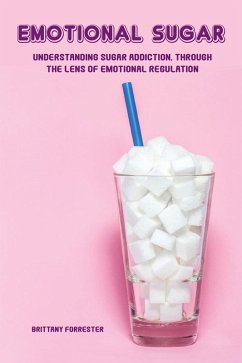From cupcakes to pies to iced coffee drinks, sugar is found in many foods and is almost impossible to avoid. Emotional or psychological dependence on sugary foods and beverages, also known as sugar addiction, is a fundamental cause of concern for health officials in America. Processed foods and refined grains create additional sugar in the body once the body metabolizes the food. Sugar in moderation is not harmful; however, many overdo it. A recent study suggests Americans eat far too much sugar. Specifically, approximately 75% of Americans eat excessive amounts of sugar, many of whom could be classified as having a sugar addiction.
Sugar consumption can create a short-term high and a spark of energy in the body. Some studies have suggested sugar is as addictive as cocaine. People often enjoy the dopamine release sugar brings. However, due to the addictive nature of sugar, long-term health effects like obesity and diabetes are a risk of sugar overindulgence. Like other compulsions or behavioral addictions, sugar addiction is a risk for people with low moods, anxiety, and stress.
This book explored sugar use, as an addictive process, through the lens of emotional regulation, addressing the research question: What is the lived experience of emotional regulation through sugar addiction?
This book aimed for a greater understanding of the interdependent nature of sugar and emotions. What might a sugar-addicted population express that facilitates recovery and emotional regulation? The lived experience revealed that envy, deprivation, fear of sugar control, and lack of support from authority figures contributed to an inability to get enough comfort foods or stop overconsumption and contributed to feelings of guilt, shame, and loss.
Sugar consumption can create a short-term high and a spark of energy in the body. Some studies have suggested sugar is as addictive as cocaine. People often enjoy the dopamine release sugar brings. However, due to the addictive nature of sugar, long-term health effects like obesity and diabetes are a risk of sugar overindulgence. Like other compulsions or behavioral addictions, sugar addiction is a risk for people with low moods, anxiety, and stress.
This book explored sugar use, as an addictive process, through the lens of emotional regulation, addressing the research question: What is the lived experience of emotional regulation through sugar addiction?
This book aimed for a greater understanding of the interdependent nature of sugar and emotions. What might a sugar-addicted population express that facilitates recovery and emotional regulation? The lived experience revealed that envy, deprivation, fear of sugar control, and lack of support from authority figures contributed to an inability to get enough comfort foods or stop overconsumption and contributed to feelings of guilt, shame, and loss.
Dieser Download kann aus rechtlichen Gründen nur mit Rechnungsadresse in A, B, CY, CZ, D, DK, EW, E, FIN, F, GR, H, IRL, I, LT, L, LR, M, NL, PL, P, R, S, SLO, SK ausgeliefert werden.









